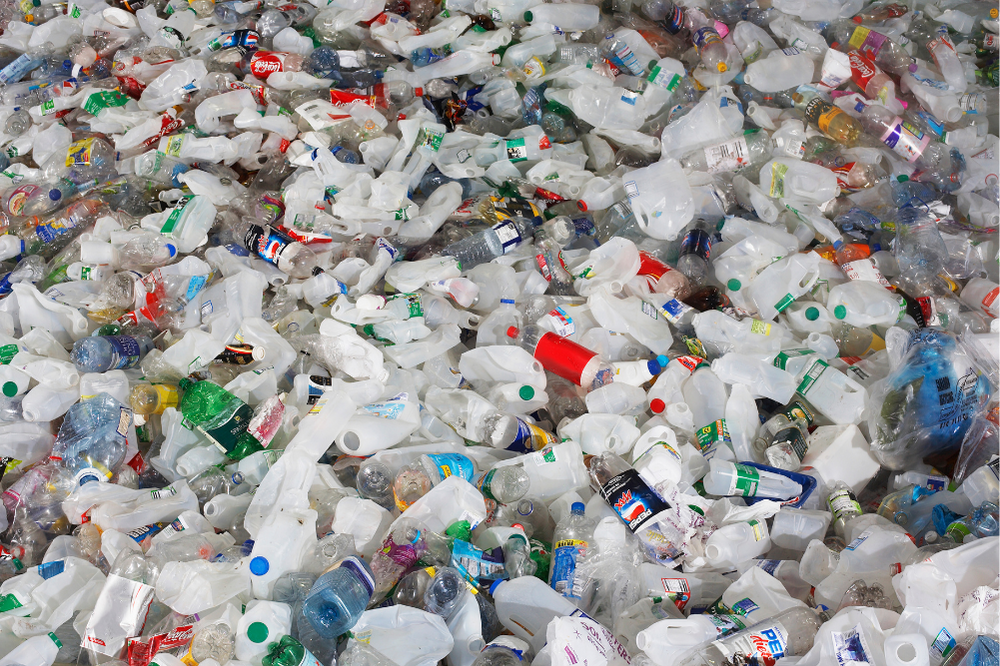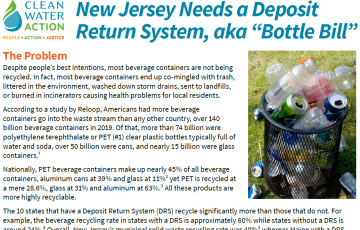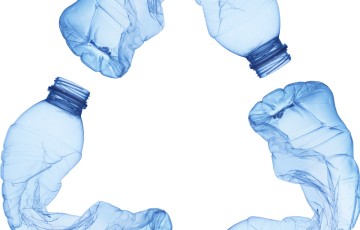
New Jersey needs a Deposit Return System (DRS) to save energy, prevent litter, keep recyclable materials out of our landfills and incinerators, and save taxpayers money in waste management.
New Jersey Needs a Bottle Bill
The Problem
-
Despite people’s best intentions, most beverage containers are not being recycled. In fact, most beverage containers end up co-mingled with trash, littered in the environment, washed down storm drains, sent to landfills, or burned in incinerators causing health problems for local residents.
-
According to a study by Reloop, Americans had more beverage containers go into the waste stream than any other country, over 140 billion beverage containers in 2019. Of that, more than 74 billion were polyethylene terephthalate or PET (#1) clear plastic bottles typically full of water and soda, over 50 billion were cans, and nearly 15 billion were glass containers.
-
As recycling increases in states with bottle bills, not only is energy saved and waste and toxins reduced but studies have shown millions of dollars of savings to state governments.
The Solution
-
A 10-cent deposit on most beverage containers, including water, soft drinks, sport drinks, juice, beer and wine would save New Jersey energy, prevent litter, keep recyclable materials out of our landfills and incinerators, and save taxpayers money in waste management.
-
Containers should include those made of plastic, aluminum, and glass.
-
Prohibit the siting of “chemical recycling” facilities (also known as pyrolysis, gasification et al) anywhere in the Garden State and their false claims of safely converting plastic into a gas, chemical, tar or oil.
The Coalition
Clean Water Action is co-leading a statewide coalition with a growing number of New Jersey residents and environmental groups including Beyond Plastics, Clean Ocean Action, Environment New Jersey, New Jersey Environmental Justice Alliance, Reloop, Sierra Club, and Surfrider Foundation. Together, we successfully secured the 2020 Bag and Polystyrene Ban law (effective May 2022) and are advocating to further reduce single-use beverage containers as we seek passage of the strongest Deposit Return System possible.
For more information, contact Marta Young, Clean Water Action, Zero Waste Specialist .

